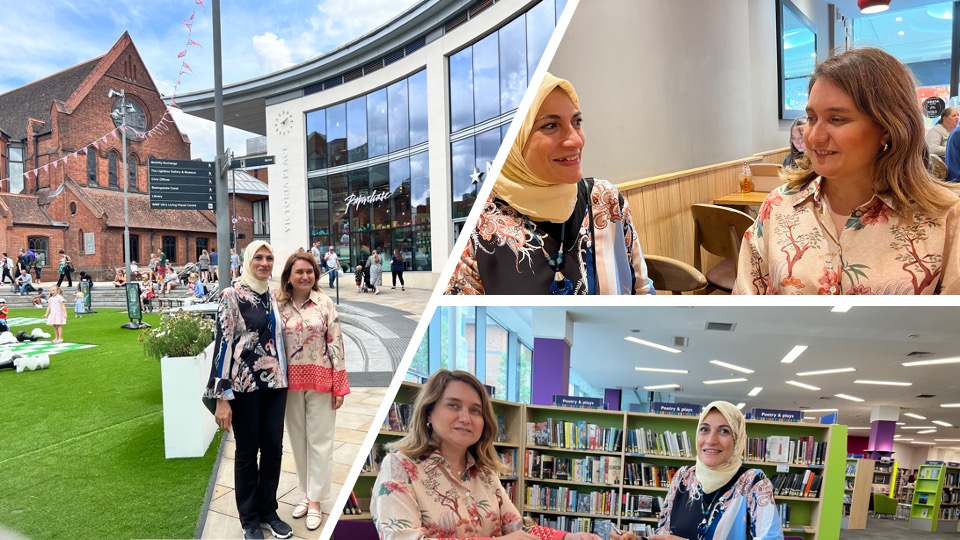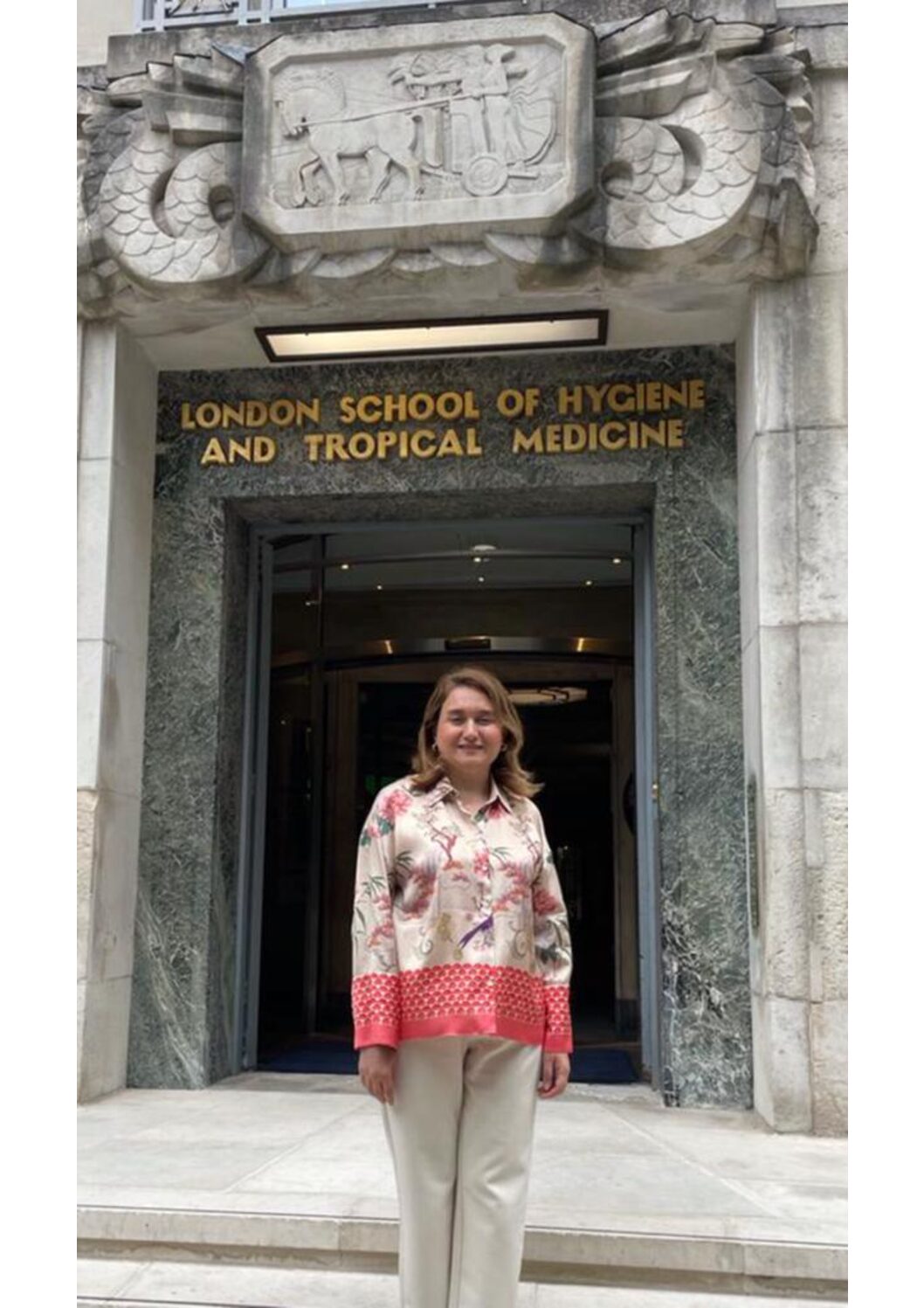MENARAH founder Professor Shereen Hussein has welcomed Professor Özmete to the London School of Hygiene and Tropical Medicine as a visiting research fellow in July-August 2022. Professor Özmete is the Dean of the Faculty of Health Sciences and a professor at the Department of Social Work at Ankara University. She is also the Director of the Centre on Ageing Studies Implementation and Research Centre (YASAM), Ankara, Turkey.
In this blog, Professor Özmet shares a summary of a project she led that evaluated intergenerational solidarity in Turkey. The project took place between May 2015 and November 2016 and was supported by The Scientific and Technological Research Council of Turkiye (TUBİTAK).

The primary purpose of this project was to evaluate intergenerational solidarity at the micro level from the perspective of individuals aged 65 and older (with children) and adult children aged 20-54 with elderly parents. Intergenerational solidarity was examined in six dimensions within the scope of this project. These dimensions are listed below.
- Structural Solidarity: the scope of opportunities that can be offered from older people to their children or from children to their more ageing parents due to geographical proximity between family members.
2. Effectual Solidarity: the feelings and evaluations of family members about their relationships with other individuals.
3. Normative Solidarity: expectations regarding filial and parental obligations and adherence to the norms adopted about the importance of family values.
4. Consensual Solidarity: the generation’s consensus on ideas, values and orientations.
5. Functional Solidarity: includes financial and caring support across generations.
6. Associational Solidarity: the frequency and quality of relations between generations.
METHODS
The evaluation employed a mixed-methods approach. A survey completed by older people and their adult children was used to provide a quantitative understanding of critical issues, and in-depth interviews were used in the qualitative part. A total of 4,100 people completed the survey for two sample groups from 12 provinces in Turkiye (Istanbul, Ankara, Izmir, Balikesir, Kocaeli, Adana, Kayseri, Samsun, Trabzon, Erzurum, Malatya, Diyarbakir) within the scope of the Quantitative Research. The sample group consisted of 1,902 persons aged 65 and over with adult children and 2,198 adult children aged 20-54 with older parents.
The sociodemographic characteristics of the older people showed that the ratio of married older adults (80.6%) was higher than that of married older women (50.8%) in this sample. Also, the percentage of those who lost their spouses among older women (44.8%) was higher than that of older men (15.9%). While only 3.2% of women consider remarriage, this ratio rises to 25.8% for men. Approximately one-fourth (25.6%) of older people had difficulties meeting their financial needs. The primary source of income for older people was pension (83.3%), followed by their children’s financial help (11.2%).
FINDINGS
Nearly two-thirds (62%) of older people and 60.8% of adult children were satisfied with their lives. Being a woman was a risk factor for life satisfaction while being married and having a high income were protective factors. 65.4% of older people and 67.6% of adult children evaluate good quality of life. Most older people stated that their children could take care of them when needed (82.4%) and that they showed respect (85.7%). Older people generally said they were peaceful and happy (76.1%). However, more than half of the elderly (57.7%) think old age is preparation for death.
Structural solidarity: Older people reported more contact with their sons (54.8%) than their daughters (44.6%). Older people tended to live in the same house (38.9%) or the same city (33.3%) as their children, whom they contact most frequently. Thus, a significant relationship was determined between contact frequency and geographic distance. Spouses (34.8%) provided most of the care needs of the other older person. When older people encounter a problem, they mostly solve their problems (33.5%) or turn to their spouses (33.7%). Then, they refer first to their sons (19.2%) and then to their daughters (11.6%). Just over one quarter (26.4%) of adult children provided care to their parents daily, while 15,8% did this 2-3 times a week.
Effectual solidarity: Older people reported strong relationships with their children in terms of effectual solidarity (83.8%). They had close relationships based on respect, fairness, trust, and understanding. However, as the ages of the elderly progress, their level of effectual solidarity with their children decreases, increasing their vulnerability. Also, the higher the income level of the elderly people, the higher the effectual solidarity.
Normative Solidarity: While the majority of older people (77.8%) thought that the primary responsibility of care belonged to the family, some believed it was the state’s responsibility (14,8%). Also, most adult children (83.8%) accepted the family’s responsibility. Among the family members, sons (43.5%), spouses (30.3%) and daughters (32.7%) were held responsible, respectively. Adult children mainly stated that they look after their parents because they are their mother/father (73.7%), they love them (64.3%), they respect them (41,5%), they are conscientious (38%), based on religious order (30,4%), and based on reciprocity (45.6%). Among the reasons for not providing care are being unable to find time due to working life (41,2%) and the lack of financial means (38,8%). In terms of care, older people expect the family to have their own house and to visit and take care of all their needs. In addition, older people reported that all children should assume equal responsibility in respect of their parents. Older people did not want to go to a nursing home and did not prefer home care. During the care process, the older person and adult children expected economic and home care support from the state. In addition, specialized institutions for Alzheimer’s and dementia, daycare centres, home caregiver support and psychosocial support were given importance.
Consensual Solidarity: Older women’s level of consensual solidarity with their children was higher than that of older men. Older people in the 65-70 age group reported more consensual solidarity with their children than those aged 71 and older. In addition, the higher the income level of the older person, the higher the level of consensual solidarity with their children.
Functional Solidarity: Older people have rarely exchanged gifts and given financial aid to their children in the last six months. Adult children often help their older parents with household chores and transportation, and older people contribute to caring for their grandchildren. Nearly half (43.9%) of older people who have grandchildren look after their grandchildren daily, and 35.7% of adults who have children receive daily support from their older parents for child care.
Associational Solidarity: The proportion of older people who meet face-to-face with their children every day was 64.7%.While the ratio of elderly people who talk to their children on the phone daily was 48.5%, the percentage of those who speak on the phone several times a week is 28.8%. The level of activity of older people with their children was low. Children often visit their older parents on religious holidays. Parents in the 65-70 age group had more positive evaluations of associational solidarity than those aged 71 and older. As the income and education level of the older person increases, associational solidarity with their children also increases.
Turkey’s current situation of intergenerational solidarity was evaluated positively by 60% of older people and 59% of adult children. The most critical dimensions of solidarity for older people and adult children in Turkey were effectual and associational solidarity. Moderate solidarity dimensions for the elderly and adult children were determined as normative (older people: 78.8%; Adult children: 78.3%) and consensual solidarity (older people: 78.8%; Adult children: 80.2%). Functional solidarity is the lowest form of solidarity provided by the elderly to their children in Turkey (Elderly: 38,24%; Adult children: 75.7%).
CONCLUSION
Both older people and adult children were concerned that the ties between adult children, grandchildren, and older parents decreased daily. Also, both groups stated that the excessive use of technologies such as television and computers in the family prevents intergenerational solidarity. In addition, geographical distances hinder intergenerational solidarity. Finally, the fact that adult children do not pay enough attention to the problems of their elderly parents also reduces intergenerational solidarity.
Some variables that affect different intergenerational solidarity dimensions were determined within the project scope. For example, it has been determined that structural solidarity for older people is affected by the self-care capacity of the older person, effectual and consensual solidarity by children’s respect; normative solidarity by geographical distance, functional solidarity by the frequency of meeting with their children face-to-face, and associational solidarity by the frequency of phone calls.
When intergenerational solidarity is evaluated in terms of adult children, structural solidarity is affected by the frequency of caring for parents and taking care of their needs; effectual solidarity is by the thought that their children will take care of them when they are old, normative solidarity by the idea of looking after their spouse when they are old; consensual solidarity by childrens’ respect; functional solidarity by where their most frequent contact parents live; associational solidarity by the frequency of getting help from parents while raising their children.


